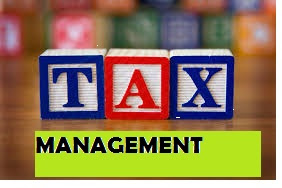TAX-MANAGEMENT OVERVIEW – NIGERIA
Table of Contents
TAX-MANAGEMENT OVERVIEW – NIGERIA
Tax Authority:
As a matter of fact, a lot of you get into trouble with tax authorities for lack of good understanding about Tax management, and even when you know, how to go about it becomes another issue. You think that the little amount of money you pay to a consultant is a waste. Now tell me, if you pay a tax consultant N200,000 to save N6,000,000 in tax ( tax savings) and to loose the N6,000,000 to tax payment which one is cheaper.In the light of these, this article will let you know who the tax consultant is and what he does for you. You will also get to know his relationship with tax management.
Added in this article is a comprehensive list of existing tax laws in Nigeria. In subsequent write-ups I shall deal with, tax administration in Nigeria, discuss the administrative machinery and income tax regulation in Nigeria, tax system in Nigeria challenges and the way forward, Nigerian tax system and structure .
TAX-MANAGEMENT OVERVIEW – NIGERIA
That is to say that, after reading this article you will be able to spearhead Tax Management processes in your business or organisation and for yourself who is a sole trader or a worker who pay tax through the office and still have other investments outside the office income. I know that it will also be of great benefits to those in the academic world. In my write-ups like this I always try to carry along members and students of Institute of Chartered Accountants of Nigeria (ICAN), and those of Chartered Institute of Taxation of Nigeria (CITN) and Association of National Accountants (ANAN) , because that is my constituency.
TAX-MANAGEMENT OVERVIEW – NIGERIA
WHAT IS TAXATION?
Firstly, I want you to know what taxation is. Taxation is a compulsory contribution imposed by governments by legislation on her corporate and individual citizens in order to generate revenue to provide public goods and services and to regulate the economy. I want to tell you that every compulsory activity like this needs to be managed properly. This is because compulsory obligations always have legal backings with terms of penalties for disobedience embed in it.
READ ALSO: Only 14m Nigerians Pay Tax
What is Tax Management
TAX-MANAGEMENT OVERVIEW – NIGERIA
TAX-MANAGEMENT OVERVIEW – NIGERIA
Tax Audit:
It is also statutory, that the relevant tax authority will come around you every two your for tax audit. Tax audit is to confirm that the tax you paid under the voluntary compliance regime is correct, adequate, and paid as when due. If the tax you paid is not adequate, it means you will be made to pay more. If it is not correct you will be corrected, and if that error is a deliberate action penalty follows it. Payment as when due means you have to pay your tax within the statutory time stipulated for payment of such tax. So you may have paid correct and adequately but paid after such stipulated time, you will be penalised for late payment.
As you can see, there are a lot to be done in tax management. You have to decide whether you can do it on your own or not. But I wish to advise that you look for tax consultants. That is what tax experts are trained and licenced for. The complications involved in tax management is beyond what you can do if you are not so trained. Tax Experts handle clients’ tax management system in the best professional manner, which ensures that clients comply with every regulatory framework necessary. You may wish to Contact cfmclimitd@gmail.com and your tax processes will be so well managed.
TAX-MANAGEMENT OVERVIEW – NIGERIA
Tax Management Gist:
READ ALSO: The Uses of Tax Clearance in Nigeria
TAX-MANAGEMENT OVERVIEW – NIGERIA
Read on please!
Going forward, fowler maintained that there would be greater emphasis on the role of the tax consultants in ensuring compliance by their clients.
TAX-MANAGEMENT OVERVIEW – NIGERIA
WHO IS A TAX CONSULTANT/ADVISER?
Most tax consultants’re professional accountants and so are capable of providing their clients with financial and tax-related advice. They meet with clients over the phone and in-person to discuss their clients’ tax situations. They educate their clients on tax options, including how to legally lower tax liability ( known as tax avoidance) or how to compute taxes based on their investments – sector based tax incentives.Tax consultants might prepare and complete client tax returns and assist clients in finding the right deductions, credits and adjustments based on their financial situation – e.g with-holding tax issues. Consultants must stay up-to-date on the latest federal and state tax requirements, consult tax law handbooks and look for bulletins regarding common and atypical tax procedures.
Work schedule of the tax consultant:
•Tax Planning: Helping businesses and individuals create strategies for dealing with tax and prepare for their future in the financial market• Tax Avoidance: This involves advising and consulting with clients in order to provide advice about tax legislation. For instance, ensuring your businesses and assets re properly structured to minimise the incidence of taxation
• Advising on employee tax incentive schemes. For exmple, share options, share ownership trusts, tax-efficient employee benefits and the creation of employee benefit trusts
• In addition, is advising clients on aspects of property transactions. This include acquisitions of foreign property, and the use of tax efficient structures in property deals. Others include the effective use of partnerships and co-ownership structures
• Calculating tax liability to ensure compliance is completed speedily and efficiently. Subequently, submitting tax returns and associated documents by the appropriate deadlines.
All these activities of the tax consultant in collaboration with the tax payer is what is called Tax Management.READ ALSO: Purpose of Financial Statements
TAX-MANAGEMENT OVERVIEW – NIGERIA
EXISTING TAX LEGISLATION IN NIGERIA AS AT 31/12/2016
The following is curled from FIRS – igeria website. The knowledge of the existence and contents of these tax laws is necessary to both the tax payer and the tax consultant. This is the basis of all the jobs/assignments that the tax consultants do for you.
Tax legislation is the act or process of enacting tax laws and the body of laws that provide for the levying of taxes and tax administration.
TAX-MANAGEMENT OVERVIEW – NIGERIA
Tax Laws:
- Associated Gas Re-Injection Act
- Capital Gains Tax Act
- Companies Income Tax Act
- Deep Offshore and Inland Basin Production Sharing Contracts Act
- Tertiary Education Trust Fund Act
- Federal Inland Revenue Service (Establishment) Act
- Income Tax (Authorised Communications) Act
- Industrial Inspectorate Act
- National Information Technology Development Act
- Nigerian Export Processing Zones Act
- Industrial Development (Income Tax Relief) Act
- Nigeria LNG (Fiscal Incentive Guarantees and Assurances) Act
- Oil and Gas Export Free Zones Act
- Personal Income Tax Act
- Petroleum Profits Tax Act
- Value Added Tax Act
- Stamp Duties Act
- Taxes and Levies (Approved List for Collection) Act
- Casino Act
TAX-MANAGEMENT OVERVIEW – NIGERIA
Reviews, amendments and modifications to tax legislations are continuous, evolving with global best practices and in keeping with the local socio-economic realities. The review and amendment of tax legislation is in keeping with the formal tax amendment process as provided for in the Nigerian constitution.
As a result of the need to continuously review and amend tax legislation, the following tax laws were amended in the respective years indicated here-under:
Companies Income Tax Act – 2007
Value Added Tax Act- 2007
Personal Income Tax Act – 2011
The Petroleum Industry Bill (PIB) is presently before the National Assembly and when passed into law will replace the Petroleum Profits Tax Act. In addition, there is an on-going process to overhaul all existing tax laws and the Service has consequently initiated the Tax Law Redrafting Project to achieve this.
READ ALSO: Tax Evasion VS Tax Avoidance
TAX-MANAGEMENT OVERVIEW – NIGERIA
- Which taxes are payable and period covered,
- The time for payment,
- Where to pay,
- Which tax authority to pay to,
- In addition re, Relevant laws, regulatory bodies, and professional standards,
- Relevant penalties ( if defaulted)
- Relevant incentives and how to claim them,
- When, why, and where to make objections, etc.
- Ensure you have your TIN, ( Tax Identification Number)
- Ensure you have your VAT registration number
- Keep your tax payment time table,
- Make your tax computations,
- Make your tax returns,
- Obtain your Tax Clearance Certificates,
TAX-MANAGEMENT OVERVIEW – NIGERIA
-
- Avoid multiple taxation,
- Keep your list of approved taxes,
- Claim tax incentives
- Manage fixed assets for tax purposes,
- Advice you on investment strategies(where and which sector to invest in) for tax purposes,
- Educate you on donations issues etc.
- Company income tax,
- Education tax
- Petroleum profit tax,
- Solid mineral Tax
- Royalties,
- P.A.Y.E and statutory deductions,
- with holding taxes,
- Stamp Duties etc.

- Transfer pricing matters,
- Double taxation issues,
- E-commerce taxation
- How you can avoid tax penalties,
- Manage your pioneer process/status,
- Liaise with relevant tax authorities in event of tax audit or investigation
TAX-MANAGEMENT OVERVIEW – NIGERIA

Deacon Anekperechi Nworgu, a seasoned economist who transitioned into a chartered accountant, auditor, tax practitioner, and business consultant, brings with him a wealth of industry expertise spanning over 37 years.




